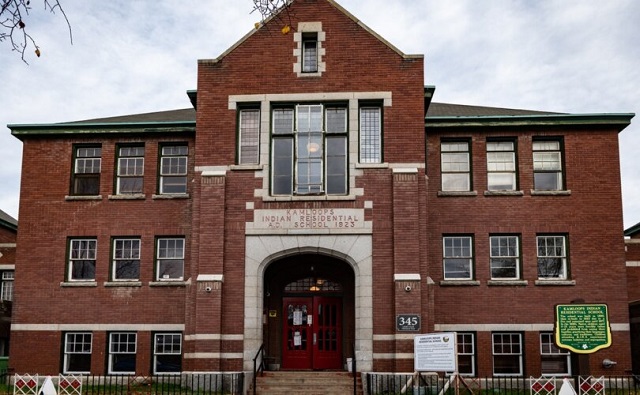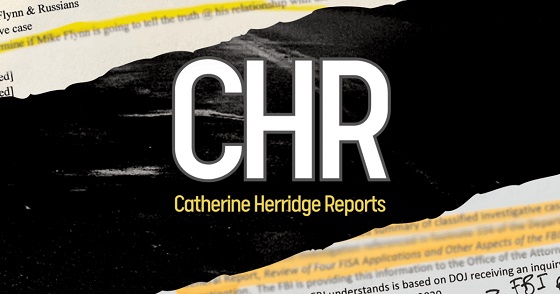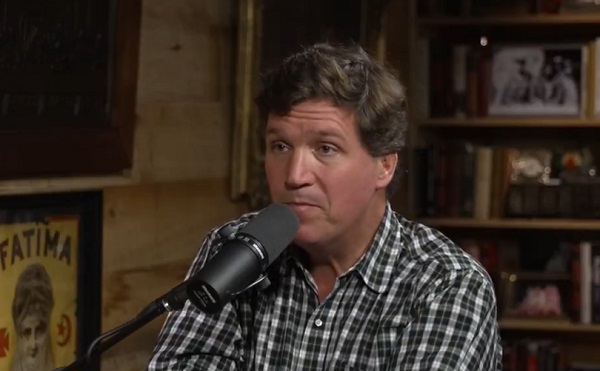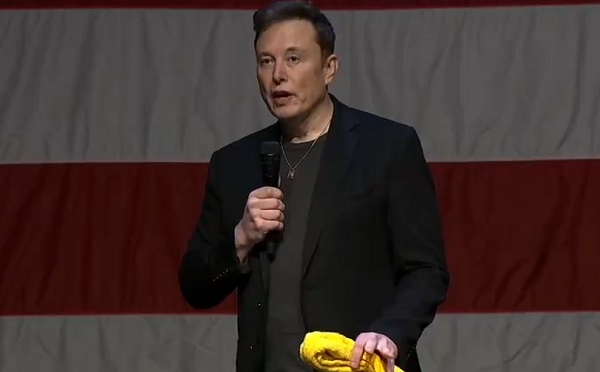Media
Canadian media outlet deletes X post on ‘unmarked graves’ after receiving Community Note

From LifeSiteNews
Shortly after being fact-checked on X, CityNews removed their post and edited their article.
Specifically, the outlet changed the headline to read “suspected unmarked graves” rather than “unmarked graves.”
Canadian mainstream media outlet CityNews has deleted a social media post claiming 215 “unmarked graves” were found at the Kamloops Indian Residential School three years ago after X’s “Community Notes” feature reminded users that no bodies have actually been found.
In a May 27 article, CityNews recalled the supposed “discovery” of 215 unmarked graves at Kamloops Indian Residential School, only to have their claim corrected by the “Community Notes” feature on X, formerly Twitter, which adds user-inputted context underneath posts to clarify ambiguous or misleading information.
“May 27 marks a grim anniversary,” the outlet originally wrote in a post captured by the Counter Signal. “Three years ago, Monday, hundreds of unmarked graves were discovered at a residential school site in Kamloops.”
However, those on social media were quick to point out that no bodies have actually been discovered on the former school’s grounds, despite millions being spent by the federal government in search of said bodies.
Indeed, while mainstream media and Liberals continue to claim that hundreds of children were killed and secretly buried at the schools, not one body of a former student has been discovered.
In light of this reality, X added a “Community Note” to the post clarifying that “No remains have been recovered nor have any graves been identified at this time.”
Shortly after being fact-checked on X, CityNews removed their post and edited their article.
Specifically, the outlet changed the headline to read “suspected unmarked graves” rather than “unmarked graves.”
As The Counter Signal pointed out, the original version of the article ironically criticized those who believe and spread “misinformation” regarding residential schools, presumably referring to those who refuse to go along with the mass graves narrative due to the complete lack of physical evidence.
In a seeming effort to rectify their own misinformation, an editor’s note was added to the initial piece, which reads:
An initial version of this article stated the Tk’emlups te Secwépemc initial findings, which the Nation said 215 graves had been discovered at the Kamloops Residential School.
Since May 2021, the Tk’emlups te Secwépemc have revised this position, stating that 200 ‘anomalies’ and suspected burial sites have been located using ground penetrating radar.
Even in the clarifying statement, the outlet stopped short of explaining that not a single body has been found at the site.
The Counter Signal also noticed that the outlet swapped out the “related articles” that appeared in the initial piece.
According to screenshots of the first article, related articles featured had headlines that read: “Discovery of children’s remains at former Kamloops school an ‘unthinkable loss’” and “Remains of 215 children found at former residential school.”
Now, the headlines read: “Vancouverites honour third annual National Day for Truth and Reconciliation,” “Chief says grave search at B.C. residential school brings things ‘full circle,’” and “Stó:lō Nation says 158 children died at Fraser Valley residential schools, institutions.”
Perpetuating hatred towards the Catholic Church by using false narratives
The one thing CityNews reported accurately was that it has now been three years since the claims of unmarked graves found at residential schools shocked Canadians.
Since then, over 100 churches have been burned or vandalized across Canada in seeming retribution for the baseless claims. Instead of apologizing for their misleading claims which have driven anti-Catholic sentiment, Prime Minister Justin Trudeau’s federal government and the mainstream media have seemed to sympathize with those destroying churches, as evidenced by a Canadian Broadcasting Corporation report on the matter.
Canadian indigenous residential schools, while run by both the Catholic Church and other Christian churches, were mandated and set-up by the federal government and ran from the late 19th century until the last school closed in 1996.
While some children did die at the once-mandatory boarding schools, evidence has revealed that many of the children tragically passed away as a result of unsanitary conditions due to the federal government, not the Catholic Church, failing to properly fund the system.
Instead of defending the Church against the allegations, politicians and bishops have largely gone along with the mainstream narrative, leaving many Catholics to fend for themselves.
One notable exception is retired Bishop of Calgary Frederick Henry, who last September blasted the blatant “lie” that thousands of missing indigenous children who attended residential schools run by the Catholic Church were somehow “clandestinely” murdered by “Catholic priests and nuns,” and placed in unmarked graves.
Catherine Herridge
How X And Joe Rogan Broke The Back of 60 Minutes

| TOP LINE: | |||||||||||||||
| Super consumers of news are flocking to X and other platforms that support independent journalism, diverse voices and embrace transparency. The post election TV ratings abyss is driven both by technology and by the public’s loss of trust in Mainstream media. | |||||||||||||||
| DEEP DIVE: | |||||||||||||||
| To buy MSNBC or not to buy? | |||||||||||||||
| This week’s headline that Comcast will spin off its cable channels underscores the tectonic shift in the media marketplace and how technology is providing the exit ramp for competing platforms. | |||||||||||||||
| When my job as a senior investigative correspondent at CBS News was terminated in February, I took a few months to educate myself about the marketplace because so much had changed since I left Fox in 2019. What I found was genuinely surprising, a little frightening and, oddly, re-assuring for the strength of our democracy. | |||||||||||||||
| You can’t argue with the data. It is compelling. On Election Day, according to @Xdata, the platform boasted record usage of 942 million posts worldwide and 2.2 million hours of watch or listen time over approximately 160k live events. The X data crushed engagement numbers for the mainstream media (MSM.) | |||||||||||||||
|
|||||||||||||||
| By example, a Tucker Carlson interview on X has 35 million engagements. The CBS Evening News has 4.5 million viewers. If I had to choose, I’d take 30 million engagements on X because it represents explosive growth. | |||||||||||||||
|
|||||||||||||||
| The new super consumers of news are flocking to X and other platforms that support independent journalism, diverse voices, and embrace transparency which can strengthen democracy. This is nothing short of an industrial revolution driven both by technology and by loss of trust in corporate media. | |||||||||||||||
| In 2023, Human Rights lawyer Jacob Mchangama wrote about the upheaval and resulting, “elite panic.” | |||||||||||||||
| “Elite panic is this recurring phenomenon throughout the history of free speech, where whenever the public sphere is expanded, either through new communications technology, or to segments of the population that were previously marginalized, the traditional gatekeepers, the elites who control access to information, tend to fret about the dangers of allowing the unwashed mob — who are too fickle, too unsophisticated, too unlearned — unmediated access to information. They need information to be filtered through the responsible gatekeepers and it may be even more dangerous to allow them to speak without adult supervision. That’s a phenomenon that we see again and again. And we’re seeing it play out now on social media. … [Elite panic is] one contributing factor to the free speech recession.” | |||||||||||||||
|
|||||||||||||||
| If you asked me four years ago, if a presidential candidate could skip a 60 Minutes interview, I would have been skeptical. Four years later, candidate Trump bypassed the legacy news magazine and instead, sat down with Joe Rogan. As of this writing, the marathon sit-down viewership reached 51 million views. | |||||||||||||||
| There is no doubt Rogan is a skilled interviewer who can draw out his subjects and deliver huge audiences. Compared to heavily edited network TV reports, the raw, unedited format reveals much about the subject. In politics, the podcast is perfectly suited for the “beer question” which measures a candidate’s authenticity and likability. | |||||||||||||||
| The progressive Harris campaign took a more traditional media approach and came up short. Neither celebrity endorsements which feel less relevant nor a 60 Minutes interview seemed to move the needle. The combined audience of the 60 Minutes Kamala Harris interview and its views on YouTube landed at about 10 million, far less than what Rogan and X delivered. | |||||||||||||||
| The legacy of the Kamala Harris 60 Minutes interview is not her responses but the lingering controversy over the CBS’ interview edit. And that is where the public’s loss of trust in the media comes in. I believe this is another driver of the audience exodus. | |||||||||||||||
| CBS aired two different answers from the Vice President to the same question from correspondent Bill Whitaker about the Israeli Prime Minister apparently ignoring the Biden Administration. | |||||||||||||||
|
|||||||||||||||
| Since, a credible complaint has been filed at the FCC alleging “news distortion” at the network with a reasonable demand that the full, unedited Kamala Harris transcript be released. CBS News has said “it fairly presented the interview to inform the viewing audience and not to mislead it.” | |||||||||||||||
| In the October newsletter, I explained that releasing the full, unedited transcript would resolve these questions. There is ample precedent. | |||||||||||||||
|
|||||||||||||||
| As a senior investigative correspondent at CBS News, I interviewed President Trump at the height of the COVID-19 pandemic. I advocated for and CBS News published the full, unedited transcript. | |||||||||||||||
| The CBS News Trump interview was not a special case. The full, unedited transcript from Attorney General Bill Barr’s 2019 interview with CBS chief legal affairs correspondent Jan Crawford was also shared by the network. And more recently, 60 Minutes released the full unedited transcript of its interview with Fed Chair Jerome Powell. | |||||||||||||||
| If the current trend continues, in the 2028 election cycle, the broadcast networks will firmly take a back seat to podcasts, town halls, and investigative journalism on X. For independent journalists and small digital newsrooms, the challenge is developing revenue streams that are viable. | |||||||||||||||
| In February, I was not comforted by the analogy that losing my corporate reporting job was like getting pushed off the Titanic when there were still seats in the lifeboats. In retrospect, I wonder if it may turn out to be more accurate than I initially thought. | |||||||||||||||
| After turning down job offers for which I remain grateful, I began building the Catherine Herridge Reports brand on X and in the newsletter marketplace. These platforms are the new media beachheads. Content is King. | |||||||||||||||
| I’ll have more to say about the future of journalism and why journalism is called a profession for a reason. Look for exclusive new content on media accountability in the coming days! | |||||||||||||||
| Thank you for subscribing to our newsletter and supporting independent investigative journalism! |
Censorship Industrial Complex
Tucker Carlson: Longtime source says porn sites controlled by intelligence agencies for blackmail

From LifeSiteNews
Journalist Glenn Greenwald replied with a story about how U.S. Speaker of the House of Representatives Mike Johnson changed his tune on a dime about the Foreign Intelligence Surveillance Act (FISA), which allows the government to spy on American communications without a warrant. The journalist made the caveat that he is not assuming blackmail was responsible for Johnson’s behavior.
Tucker Carlson shared during an interview released Wednesday that a “longtime intel official” told him that intelligence agencies control the “big pornography sites” for blackmail purposes.
Carlson added that he thinks dating websites are controlled as well, presumably referring at least to casual “hook-up” sites like Tinder, where conversations are often explicitly sexual.
“Once you realize that, once you realize that the most embarrassing details of your personal life are known by people who want to control you, then you’re controlled,” Carlson said.
He went on to suggest that this type of blackmail may explain some of the strange, inconsistent behavior of well-known figures, “particularly” members of Congress.
“We all imagine that it’s just donors” influencing their behavior, Carlson said. “I think it’s more than donors. I’ve seen politicians turn down donors before.”
Journalist Glenn Greenwald replied with a story about how U.S. Speaker of the House of Representatives Mike Johnson changed his tune on a dime about the Foreign Intelligence Surveillance Act (FISA), which allows the government to spy on American communications without a warrant. The journalist made the caveat that he is not assuming blackmail was responsible for Johnson’s behavior.
Greenwald told how he had seen Johnson grill FBI Director Christopher Wray about his agency’s spying and “could just tell that he felt passionately about (this),” prompting Greenwald to invite Johnson on his show, before anyone had any idea he might become Speaker of the House.
“One of the things we spent the most time on was (the need for) FISA reform,” Greenwald told Carlson, noting that the expiration of the current iteration of the FISA law was soon approaching. He added that Johnson was “determined” to help reform FISA and that it was in fact “his big issue,” the very reason he was on Greenwald’s show to begin with.
Johnson said regarding FISA, “We cannot allow this to be renewed; it’s a great threat to American democracy; at the very least, we need massive, fundamental reform” according to Greenwald.
Johnson became House Speaker about two months to three months later, and Greenwald was excited about the FISA reform he thought Johnson would surely help bring about.
“Not only did Mike Johnson say, ‘I’m going to allow the FISA renewal to come to the floor with no reforms.’ He himself said, ‘It is urgent that we renew FISA without reforms. This is a crucial tool for our intelligence agencies,’” Greenwald reounted.
He noted that Johnson was already getting access to classified information while in Congress, wondering at Johnson’s explanation for his behavior at the time, which was that he was made aware of highly classified information that illuminated the importance of renewing FISA and the spying capabilities it grants, as is.
Greenwald doesn’t believe one meeting is enough to change the mind of someone who is as invested in a position as Johnson was on FISA reform.
“I can see someone really dumb being affected by that … he’s a very smart guy. I don’t believe he changed his mind. So the question is, why did he?” Greenwald asked.
“I don’t know. I really don’t. But I know that the person that was on my show two months ago no longer exists.”
Theoretically, there are many ways an intelligence agency could coerce a politician or other person of influence into certain behaviors, including personal threats, threats to family, and committing outright acts of aggression against a person.
A former CIA agent has testified during an interview with Candace Owens that his former employer used the latter tactic against him and his family, indirectly through chemicals that made them sick, when he blew the whistle on certain unethical actions the CIA had committed.
“This is why you never hear about CIA whistleblowers. They have a perfected system of career destruction if you talk about anything you see that is criminal or illegal,” former CIA officer Kevin Shipp said.
As a form of coercion, sexual blackmail in particular is nothing new, although porn sites make the possibility much easier. In her book “One Nation Under Blackmail: The Sordid Union Between Intelligence and Crime That Gave Rise to Jeffrey Epstein,” investigative journalist Whitney Webb discusses not only how the intelligence community uses sexual blackmail through people like Jeffrey Epstein but how it was used by organized crime before U.S. intelligence even existed.
-

 Brownstone Institute2 days ago
Brownstone Institute2 days agoThe Most Devastating Report So Far
-

 Censorship Industrial Complex2 days ago
Censorship Industrial Complex2 days agoAnother Mass Grave?
-

 ESG1 day ago
ESG1 day agoCan’t afford Rent? Groceries for your kids? Trudeau says suck it up and pay the tax!
-

 Alberta2 days ago
Alberta2 days agoMAiD In Alberta: Province surveying Albertans about assisted suicide policies
-

 International1 day ago
International1 day agoElon Musk praises families on X: ‘We should teach fear of childlessness,’ not pregnancy
-

 Business1 day ago
Business1 day agoCarbon tax bureaucracy costs taxpayers $800 million
-

 Addictions1 day ago
Addictions1 day agoBC Addictions Expert Questions Ties Between Safer Supply Advocates and For-Profit Companies
-

 John Stossel1 day ago
John Stossel1 day agoGreen Energy Needs Minerals, Yet America Blocks New Mines











